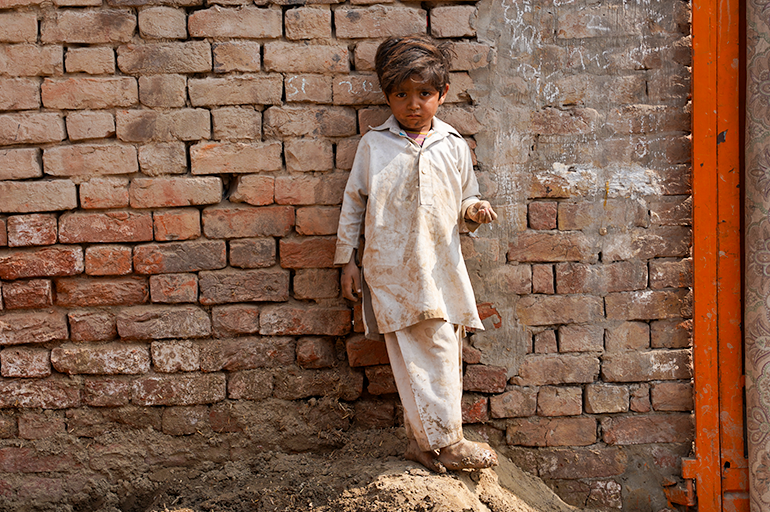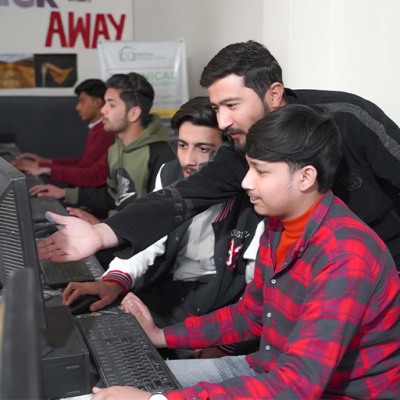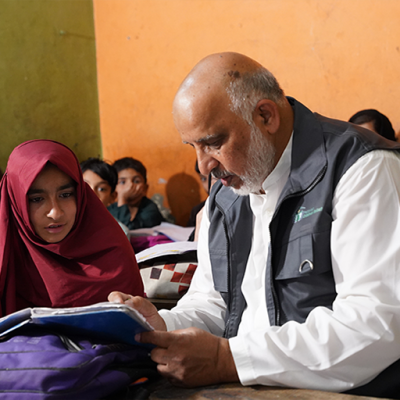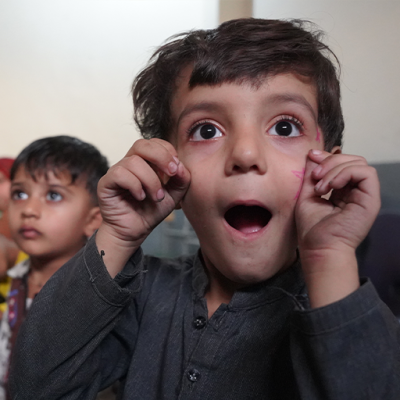When we sponsor orphaned children in Pakistan, we help address one of the nation’s most urgent humanitarian challenges. Over 4.6 million orphans live in the country, many facing poverty, uncertainty, and vulnerability, with 51.7% of the population below the poverty line. Beyond survival, these children struggle with high rates of behavioral (50%) and psychological issues (63.8%).
Organizations like PAKCR are changing this reality by providing safe, family-like environments with access to education, healthcare, and emotional support. Financial stability makes these programs possible, ensuring children receive the care they need to grow and thrive.
This article explores how financial support creates lasting change for Pakistan’s orphaned children and why sponsoring one child can make a profound difference.
How financial support builds safe homes for orphans
“It is easier to build strong children than to repair broken men.” — Frederick Douglass, Abolitionist, statesman, and social reformer
Financial stability forms the cornerstone of creating safe homes for orphaned children in Pakistan. Organizations that receive consistent financial support can establish purpose-built facilities with dormitories, classrooms, recreational spaces, and proper sanitation, all essential elements for a nurturing environment. Furthermore, steady financial backing prevents the disruption of services that often occurs with funding fluctuations. Many orphanage operators face income deficits and must use personal funds to cover essential expenses, highlighting the critical importance of regular sponsorship.
Beyond providing basic necessities, financial support enables the creation of family-like environments within these facilities. Small group homes established through proper funding show remarkable improvements in children’s development, better school performance, improved health habits, enhanced self-confidence, and stronger social skills.
Additionally, when you sponsor orphan Pakistan children, you’re contributing to both immediate relief and long-term stability. Organizations like BE AID evaluate support in two ways: general needs assistance and specialized educational support, ensuring comprehensive care that addresses both present requirements and future opportunities.
Education and skills: the long-term impact of financial stability
Education is the most powerful tool for breaking the cycle of poverty. With financial stability, sponsorship programs give orphans access to quality schooling and skills development that shape their futures. Research shows children in well-funded care are more likely to complete primary and secondary education than those in under-resourced settings.
Support often includes tutoring, vocational training, and college preparation, along with life skills such as financial literacy, communication, and household management. Many also learn practical trades like cooking, sewing, or carpentry, equipping them for employment.
Beyond academics, education builds resilience, confidence, and social integration. With these opportunities, orphaned children move from vulnerability to independence, creating sustainable pathways out of poverty.
Healthcare, emotional support, and the role of caregivers
“The most important influence on developing resilience is a protective, nurturing relationship.” — Mandy Howard, Assistant Professor of Psychology, Baylor University, expert in child development and trauma
Orphaned children in Pakistan need more than food and shelter, they require specialized physical and mental healthcare. Nearly 45% of children in orphanages face serious behavioral and emotional challenges, highlighting the need for comprehensive support. Proper care includes medical checkups, nutrition monitoring, dental hygiene, and trauma-informed therapy. Untreated trauma can triple the lifetime risk of diseases like heart and lung problems, making quality healthcare essential.
Equally important are caregivers who provide stability and emotional support. Children thrive with consistent, caring adults, yet many staff lack training. Organizations now equip caregivers with trauma-informed skills, which directly improve children’s resilience and long-term stability. By sponsoring an orphan in Pakistan, you’re ensuring not only healthcare but also access to trained professionals who help children heal and rebuild their futures.
Conclusion
Financial stability is the foundation that turns vulnerability into opportunity for Pakistan’s 4.6 million orphaned children. With steady support, they gain safe homes, nutritious meals, quality education, healthcare, and the emotional care of trained caregivers. Children in stable orphanage environments consistently show stronger academic results, healthier habits, and better social development.
Organizations like Pakistan Child Relief make this transformation possible. By sponsoring an orphan, you’re not just covering basic needs, you’re investing in education, life skills, and emotional healing that prepare children for independent, self-sufficient futures. Each sponsorship creates lasting change, helping vulnerable children grow into confident adults who can give back to their communities.
FAQs
Q1. How does financial support impact the lives of orphaned children in Pakistan?
Financial support gives orphans safe housing, quality education, healthcare, and emotional care from trained staff. With these essentials, children can overcome trauma, learn life skills, and break free from the cycle of poverty.
Q2. What are the main challenges faced by orphans in Pakistan?
Orphans in Pakistan often struggle with poverty, lack of education, limited healthcare, and emotional trauma. Many also experience behavioral and psychological issues due to instability and neglect.
Q3. How does education contribute to the long-term stability of orphaned children? Education provides orphaned children with knowledge, vocational skills, and life skills they need to become independent adults. It improves their chances of employment, stability, and long-term self-sufficiency.
Q4. What role do caregivers play in the development of orphaned children?
Caregivers provide the emotional stability orphans need to heal and thrive. With proper training, they create nurturing environments that build resilience, healthy attachments, and brighter futures for children.
Q5. How can sponsoring an orphan in Pakistan make a difference?
Caregivers provide the emotional stability orphans need to heal and thrive. With proper training, they create nurturing environments that build resilience, healthy attachments, and brighter futures for children.





